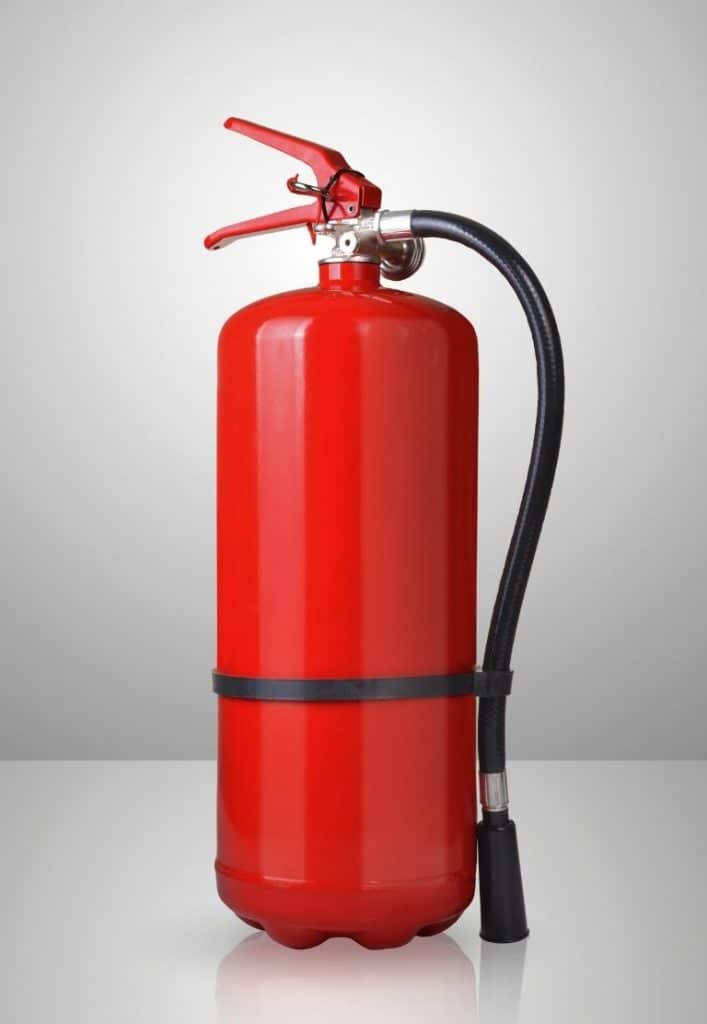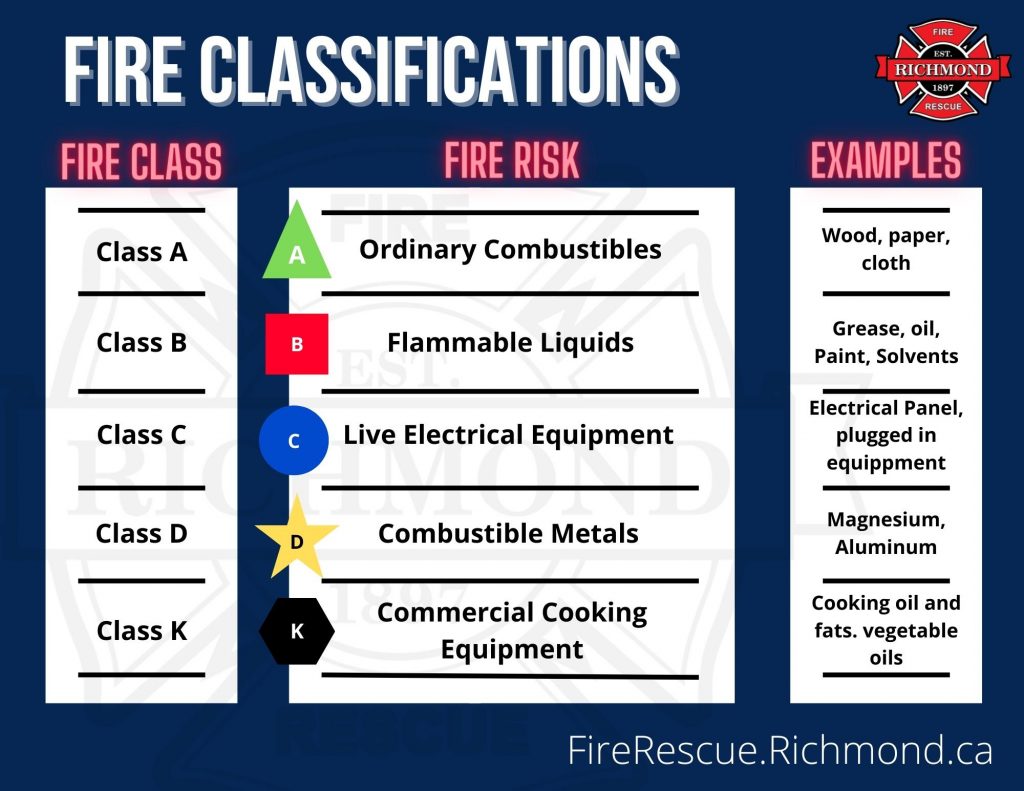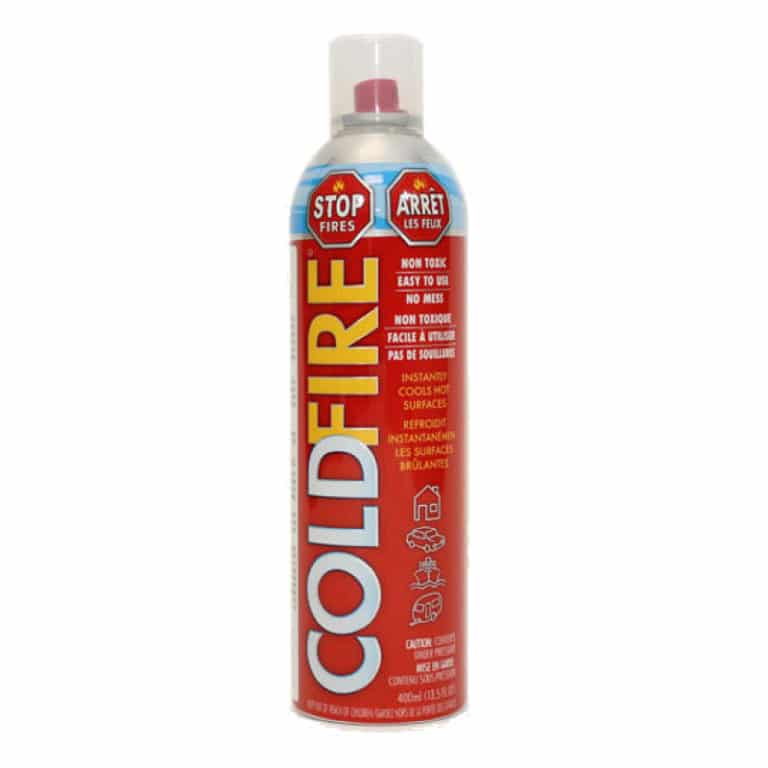
Did you know that there are many types of fire extinguishers?
To be able to decide which one you need, you need to identify what type of fire risk you have in your home.
To identify the type of fire risk, you need to be familiar with the different classes of fire.

A – Ordinary Combustibles
B – Flammable Liquids
C – Electrical
D – Flammable Metals
K – Commercial Kitchen
ABC – Most homes have a risk of ABC fires – this is the most widely home use fire extinguisher, they can be purchased at most home improvement stores.
A extinguishers contain pressurized water – never use this on electrical equipment
BC extinguishers contain pressurized CO2 (carbon dioxide) and are meant for sensitive equipment since they do not produce much residue
D extinguishers are for flammable metals – usually used in labs or research facilities
K extinguishers are required in commercial kitchens
How do they Work?
Fire extinguishers work by removing one or more of the elements of the fire triangle. Fire cannot continue to burn if you do not have all 3 actively in place
Oxygen
Fuel
Heat
For example:
Type ABC – coats the base of the fire with a fine dust, separating the fuel from the oxygen in the air extinguishing the fire.
Type BC – Displaces the oxygen and cools the surfaces, extinguishing the fire.

Cold Fire Features:
- Easy-to-use product that extinguishes fires rapidly and on contact
- Can extinguish Class A, B, D or K fires
- Non-hazardous, non-toxic and non-corrosive (ordinary combustibles, flammable liquids, combustible metals, and cooking media)
- Biodegradable and environmentally friendly
- No expiry date
- No cost of disposal
What do I need to know about Cold Fire?
- Cold Fire should not be used on Class C fires (electrical). If it is safe to do so, unplug the electrical equipment before attempting to use this extinguisher.
- For oven fires, turn the oven off and keep the door closed.
- Cold Fire should not be used for small grease fires. Smother grease fires by sliding a lid over the pan and turning off the stove top.
- Cold Fire should not be used for large fires.
- Cold Fire does not replace the requirement to have a fire extinguisher in a public occupancy building and/or strata.
When in doubt: ensure other occupants know there is a fire. Get out and stay out!
